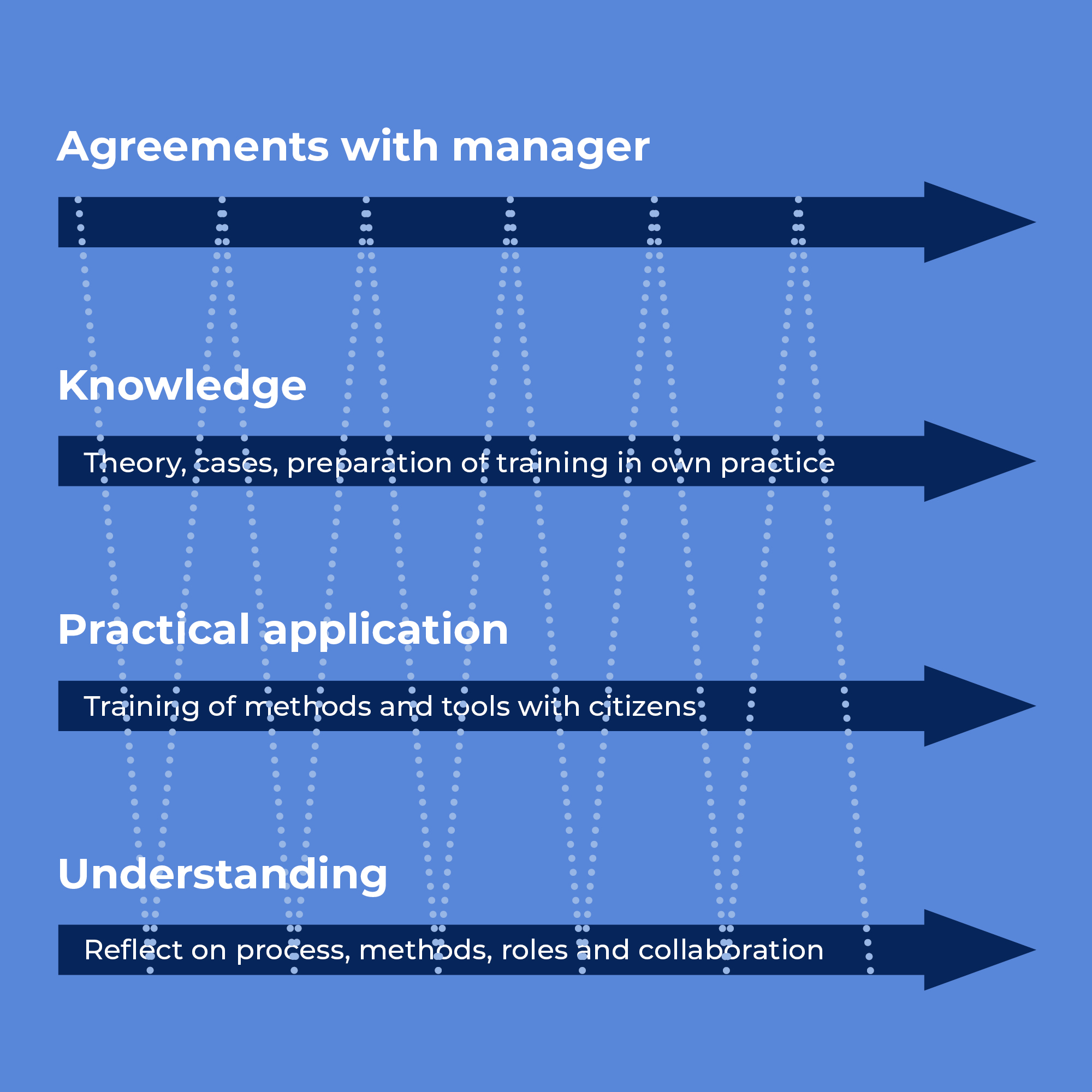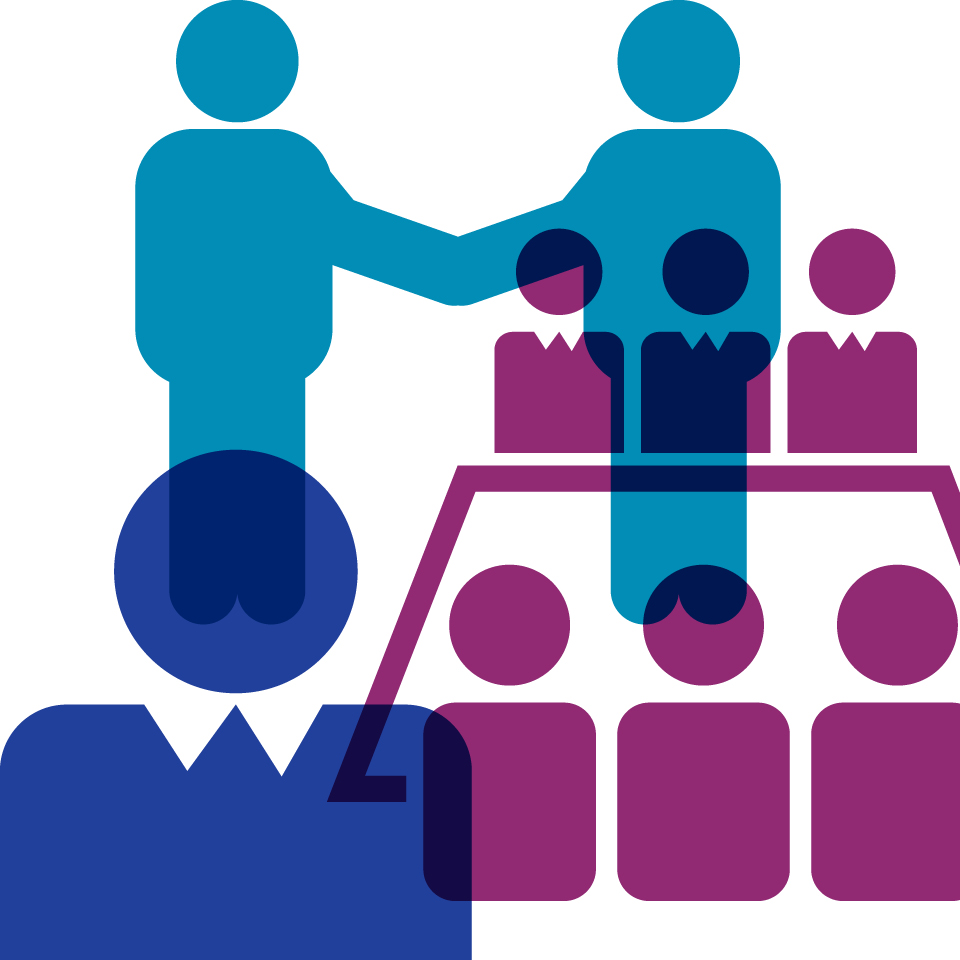What do we know about the needs and roles of digital healthcare professionals today and how can we apply this to practice?
What are the needs of the healthcare professionals in relation to digital technology?

In order to succeed with the digital development of the healthcare sector, it is important to focus on the healthcare professionals and their digital competencies. This had been done in a study including almost 500 healthcare professionals and managers across Europe.
Here are the results.
The assessment found that in order to improve the digital competencies of healthcare professionals and enabling them to feel competent and be able to work efficiently in a more digitalized healthcare sector, the following is required:
- Better training and abilities to practice.
- Focus on mind-set related to digital technology.
Better training and abilities to practice
Inadequate training due to lack of time and resources is seen as one of the biggest challenges when it comes to the implementation of digital technology in the healthcare sector.
There is a demand for training of:
- Competencies of how to use existing digital tools
- Communication on digital platforms
- Technological understanding
- Troubleshooting
- Competencies to train colleagues and citizens (patients) in using digital solutions
Further, the study shows a need for more reflection on the value of digital technology and awareness of ones shortcomings.
Focus on mind-set
Many healthcare professionals fear technology and are reluctant to replace face-to-face contact with citizens (patients) with digital technology.
A focus on changing attitudes and ways of thinking about digital technology towards more open-mindedness, interest, curiosity, patience and courage is seen as very important.
Source / References

“Employees must dare to embark on digital technology. If you have the will and the interest you will acquire the necessary competencies.” (Healtcare Manager, Denmark)
New roles and responsibilities as healthcare professional

A paradigm shift is taking place in our quest to adapt to new digital technology and changed expectations and needs from citizens (patients). Healthcare professionals must be aware of new roles and responsibilities.
Communicator
Due to people living longer with chronic diseases and hospitals under gradually more pressure, even more citizens (patients) are expected to be treated by the health sectors in close collaborating. Thus, a need arises for general improvement of cooperation through the use of digital communication. This applies to communication between healthcare sectors, communication between the hospital wards as well as with citizens (patients) and their relatives.
Cooperator, Coordinator
The competencies of a healthcare professional to manage various digital systems and maintain an overview by means of digital technology are required. Due to an increase in the number of citizens with multi-diseases and associated health problems, it is becoming more complex to handle the needs of the citizens while keeping their overall life situation in perspective.
Health Coach
Technological advancements have empowered citizens with greater knowledge about their illnesses, access to data, and connections with others facing similar health challenges. As a result, the relationship between healthcare professionals and citizens is evolving, with a shift away from an expert-driven approach. There is a growing need for healthcare professionals to provide support through meaningful dialogue, guiding patients through the vast amount of health information and focusing on their individual needs and overall life situation. Special attention should be given to the most vulnerable patients who may be at risk of being left behind in the digital transformation.
Leader
There is a continuous need for leaders who can inspire and facilitate the changes. Leaders who keep focus on how new digital solutions can improve the services and quality of health care and who have the skills and will to motivate and inspire colleagues and employees to actively participate in the organizational changes that accompany the implementation of new solutions and technologies.
Health Expert and Academic
The health expert and academic must be able to apply knowledge based on the highest international research within their own field of expertise.
This requires the ability to seek, navigate, and adapt to new knowledge rather than simply relying on being information providers. The health expert should also be proficient in using technological tools and discern when technology is relevant for individual patients, complementing it with necessary non-technical skills.
Innovator
There is an increasing need for healthcare professionals to identify new opportunities and possess the competencies and desire to develop innovative solutions. It is important for healthcare professionals to view new technological options as supportive tools to address the growing complexity of tasks within the healthcare system.
Source / References
- Based on: Fremtidens komptencer I sundhed. Lilleraturstudie og interviewundersøgelse ved AAU og CHP, Region Hovedstaden, Maj 2018

Questions for reflection
This set of questions for reflections is aimed at healthcare professionals and intended to spark reflection and discussion around one’s own current professional practice in an increasingly digitized healthcare system. Answer the questions on your own and discuss afterwards or answer the questions in groups.
- How do you perceive the changing role of healthcare professionals in light of patients living longer with chronic diseases and the increasing pressure on hospitals?
- What role do you see for digital tools in the practice of healthcare professionals, and how can they assess when digital technology is relevant for individual patients?
- In what ways do you think digital communication can improve collaboration between healthcare sectors, hospital wards, and patients and their relatives?
- How do you see the evolving relationship between healthcare professionals and patients due to advancements in digital technology and patients’ access to information about their own health?
- How can healthcare professionals effectively support and guide patients through the vast amount of health information available to them, while considering their individual needs and overall life situation?
- What measures do you think should be taken to ensure that the most frail patients are not left behind in the changing digital landscape of healthcare?
- How do you think healthcare professionals can effectively apply the latest international research within their field and navigate the constantly evolving knowledge landscape?
- How can healthcare professionals embrace the role of innovators and develop new solutions to address the increasing complexity of tasks in the healthcare system?



